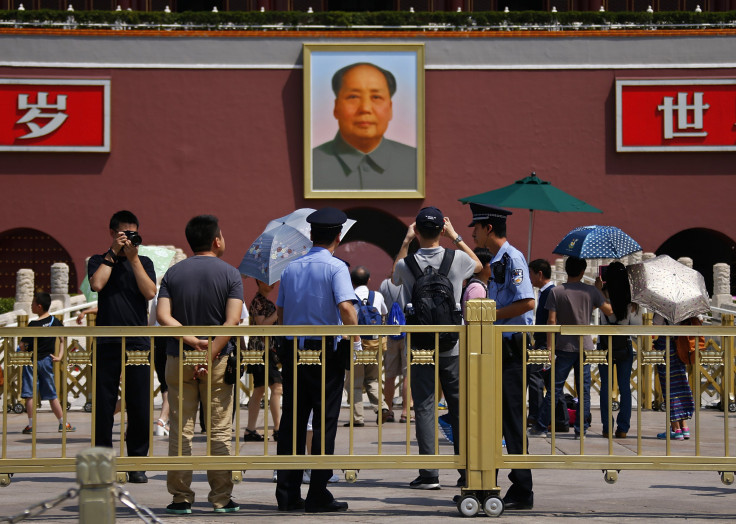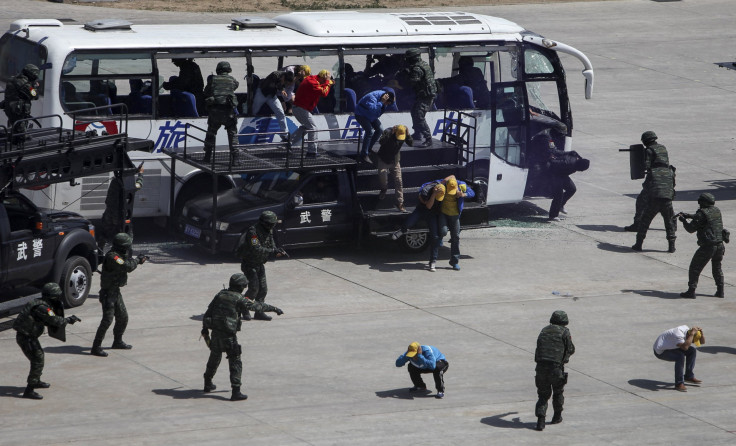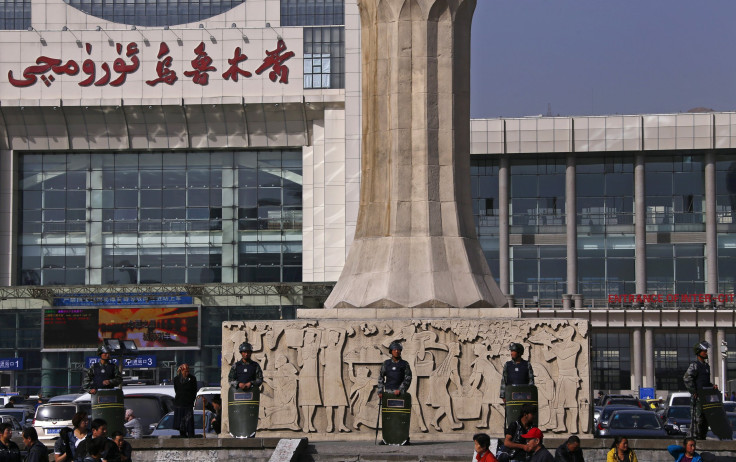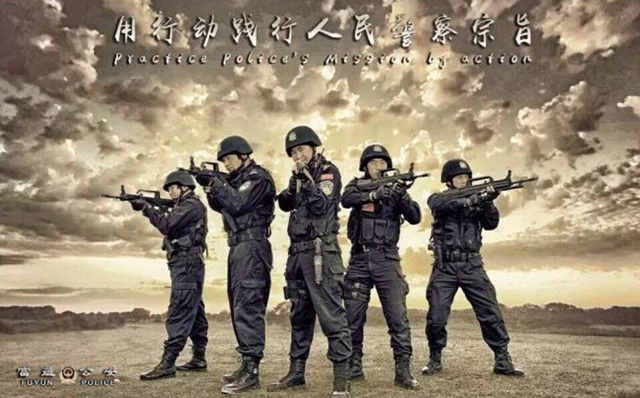China Steps Up Security Checks In Beijing, But State Media Say Chinese Military Involvement In Middle East Unlikely Despite Hostage Death

SHANGHAI -- Chinese media say security has been tightened in the capital Beijing over the past week, following the attacks in Paris, with more checks on vehicles entering the city, and more police mobilized.
Tension over terrorism in China has been heightened by last week’s report of the execution of a Chinese hostage by the Islamic State group in the Middle East, and the deaths of three Chinese citizens in Friday’s attack on a hotel in Mali. However an official media commentary Monday suggested it was unlikely that China would become actively involved in any retaliatory military action in the Middle East.
The Beijing Youth Daily newspaper said Sunday that checks on every entrance point into Beijing had been stepped up over the past week, along with scrutiny of people on the city’s streets. It said auxiliary police and armed police were both involved in what it called “a show of force.” The report said more than a million cars and 1.6 million people have been checked in the Chinese capital this month. And it said more than a hundred people had been arrested in the sweep, though it did not suggest that they were necessarily being held on terror-related charges.

Security has already been tight in major Chinese cities since a series of attacks over the past two years, which authorities say are the work of separatists from the mainly Muslim region of Xinjiang in northwest China. These include a knife attack at a railway station in the southwestern city of Kunming in March 2014 that left 31 dead, and an explosion in Tiananmen Square in October 2013 that killed two tourists and injured 39.
But the apparent execution of Chinese hostage Fan Jinghui by ISIS in the Middle East, announced last week, and the killing of three executives of the China Railway Construction Corporation in Friday’s attack on the Radisson Blue hotel in the Malian capital Bamako have added to a sense of vulnerability.
The official Global Times newspaper said Monday that questions were inevitably being raised as to whether “China will join other countries in combating the IS head-on.” But the paper noted that Chinese diplomats had so far avoided the question, and suggested the government was likely to be “extremely prudent” on the issue, since direct military participation could lead to a “series of risks” for China.
“If China steps in to combat the IS, this may prompt its domestic terrorists to join international groups,” the Global Times added in an editorial, implying that this could potentially lead to more attacks on China. It also suggested China was not “fully prepared” for military operations -- and said the government might “find it hard to obtain full public support if its troops fight in the far away Middle East.” The editorial called for a coordinated United Nations anti-terrorism plan, in which it said China would “proactively participate.” However it said Beijing could only “make contributions based on its capacity.”

The comments echo others prominently reported in Chinese media in recent days. While China’s foreign ministry said last week that the country would spare no effort to bring the killers of Fan to justice, analysts say it is unlikely that the nation, which officially preaches a philosophy of non-intervention in other countries’ affairs, would be willing to deploy its military against ISIS.
Chinese politics specialist Willy Lam, of the Chinese University of Hong Kong, told International Business Times last week that China might respond to the recent attacks by stepping up its crackdown in Xinjiang, where officials say it has arrested hundreds of people this year, in what they say is a campaign against terrorists and religious extremists. And Chinese media have confirmed that Beijing appears to be increasing publicity about its battle with terrorism in Xinjiang. On Friday, official media finally confirmed reports that police had killed 28 suspects, in response to an armed attack on a coal mine in the region in September, which authorities say left 16 dead.
The reports of the police response gave some graphic detail, including the use of a flamethrower to flush the suspected terrorists out of a cave. This contrasts with the authorities’ general policy of giving limited detail of unrest in Xinjiang. One Chinese media scholar told the Global Times authorities may now be hoping that providing more information would help ordinary people “understand the necessity of the government's anti-terrorism policy,” and would also reassure them that the government was taking decisive action.

However the paper quoted experts as saying “the government is also worried that such disclosures may provoke possible revenge and violence,” presumably against Muslims or other minority groups, though others said failing to provide information, as in the past, could lead to potentially dangerous rumors.
Analysts have also said that recent events could encourage China to take a tougher line in Xinjiang, where human rights groups have previously warned that the authorities' tough crackdown could alienate some Muslims.
In further evidence of the increased sense of urgency around counterterrorism in China, Shanghai-based expert Ni Lexiong told state media that the authorities in Beijing now have the capacity to monitor “new communication channels, including the PlayStation 4 video game console.” But he also suggested that many Chinese companies and organizations currently lacked counter-terrorism awareness.
State media also quoted experts as saying the Chinese government should set up a “more efficient information-sharing platform” to help Chinese enterprises evaluate risk when investing overseas.
On Friday, the Global Times called on Chinese citizens to avoid entering high-risk regions and “strengthen their awareness of self-protection.”
© Copyright IBTimes 2025. All rights reserved.






















